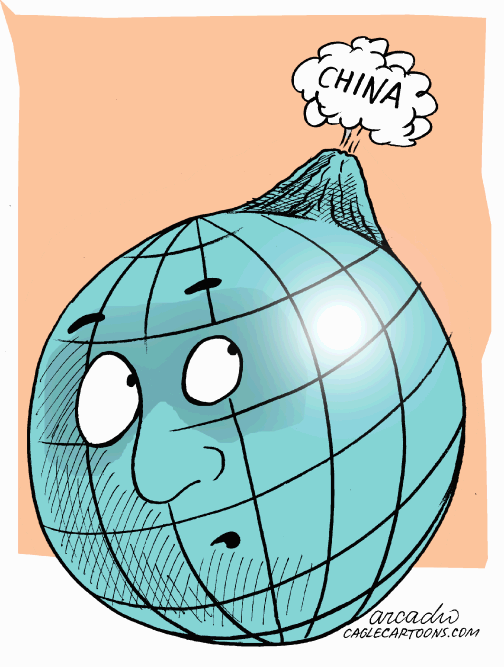Ghost Whispers
I learned today that my sister passed away. I learned over the Internet that she died in November of last year. She was much older than me and never in great health, so I had wrongfully assumed she had “crossed over” years ago. Tonight in the still heat of a stifling Guangzhou I smelled the sour scent of some hard traveled memories and heard her whisper to me….
No, we were not close. Marriage came early for her, when I was 5, and before I was developmentally mature enough to crave or mourn losses. My military family was turning corners in or out of countries every three years or so and making the word “home” an abstraction. My sister was never in our family pictures. I saw her only a few times through the years and her face in my mind’s eye is blurred. I can remember her often speaking of pain and that remains palpable.
Until tonight I had almost forgotten I had a sister. She had been adopted by my unmarried mother at birth. She saw herself later in life as a stubborn vine that connected all of us to my mother’s alcoholic ex-husband and his mistress: She was the offspring of an affair, so her past was kept secret by my simple and well-meaning parents until she was a teenager. My mother and father, emotionally unsophisticated and afraid, asked a Catholic priest to substitute for them and tell her that she was adopted. It did not go well.
I have been watching DVDs this week “expat style.” We often buy two or three seasons of a show at a time, ones we cannot watch on regular TV and then air them from beginning to end in only a few days. It is a way to keep current with our abandoned culture and remain bonded to the lexicon, fashions and familiar emotions of our birth home. This week I have been storming through two seasons of Ghost Whisperer. And I have come to love the show for its generally positive outcomes, its promotion of health through acceptance and forgiveness and its desensitization of our collective fear of the unknown.* The protagonist of the show, who can see troubled spirits, helps earthbound souls unpack the heavy emotional baggage that holds them here. She helps them release after-longing and pain from the past so they can peacefully migrate into their future. It is not a story about religion, or eschatology (life after death), but about how to live well and without regret.
My mother developed Alzheimer’s disease and never was able to finally confront the trauma of being abandoned by her impoverished mother during the Great Depression. Too, she rarely spoke about the man who had deepened her emotional wounds later in life. She did so to protect herself and to maintain some illusion of normalcy for my sister and me. There was no malice in her deception, though my sister never forgave her or my father and never found emotional nourishment that would sate the pain. Where my mother insulated herself with delusions ( and maybe her disease), my sister did so with anger and distrust. After my mother died, I read in another Internet article that my sister had embarked on a public journey to discover more about her origins. I hope to learn one day that she was successful.
I wonder if other expats learn about their vacated lives past and present as I do? I view time compressed, via boxed sets of information that arrive in emails, letters, DVD’s and Internet entries. It was almost five years ago to the day that I leaned my sister’s husband had died an improbable death: an avid outdoorsman, he had contracted Bubonic plague from an insect bite while hunting. He was the first man in America known to have succumbed to the disease in decades. He was the most gifted craftsman I have ever known, but held back from his dream of being a woodcarver and gunsmith by the needy gravity of my sister’s suffering. So, I grieved my loss and his because his short fame was only in the peculiarity of his demise. We wandering expats may seem not to care about what happens to you, but we do. I do. And I, like others, frequent the few paths we can find along time’s rivers looking for signs of you. But can be a lonely and overwhelming journey when information flows so fast from so far away.
I laugh, mourn, celebrate and educate in absentia. Memory also presents to me as a frightened bird that requires patience to keep it nearby long enough that I can study, appreciate and accept both its beauty and its flaws.
I pray that both my sister and my mother are finally at peace. I long ago forgave them for simply being human. I hope they forgave this homeless child for the manifestations of his confusion .
I am the earthbound spirit now: I am on the banks of the river, coaxing the birds and vigilantly listening for whispers….
————————————————
* In another coincidence, I was surprised to see that the crystal ball mind reader on the GW website was created by my old friend and British doppelganger Andy Naughton .
American Poet in China,American Professor in China,Asia,China Editorials,China Expat,China Expats,Confucius Slept Here,Expats,Heartsongs,Intercultural Issues,past posts,Personal Notes,Teaching in China,The Internet,Uncategorized,Veterans,Violence,Weird China,中国,中文


